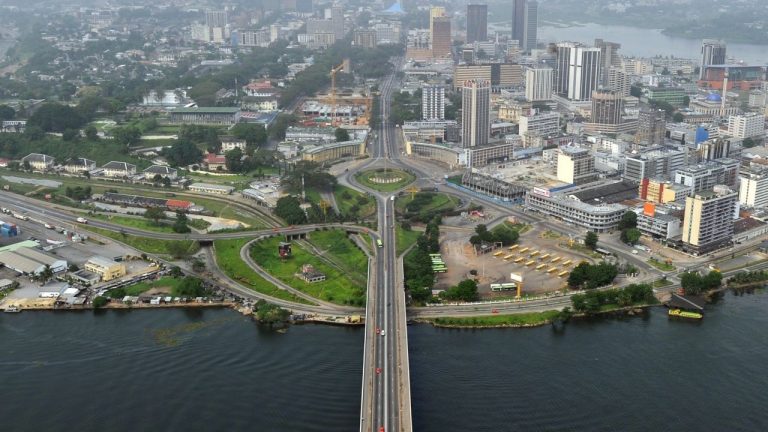
Côte d’Ivoire is solidifying its position as the economic leader of West Africa, receiving high praise from the International Monetary Fund (IMF) for its robust reforms and sustained growth.
Following the IMF’s 2024 Article IV consultations and reviews of its programs under the Extended Credit Facility (ECF), Extended Fund Facility (EFF), and Resilience and Sustainability Facility (RSF), the country’s achievements have been lauded as a model for stability and development in the region.
Over the past decade, Côte d’Ivoire has averaged GDP growth of 6.4%, maintained low inflation at 2.2%, and reduced poverty levels significantly. This performance has outpaced the broader sub-Saharan African region, where growth rates are three percentage points lower and inflation rates are nearly 4.4 points higher.
Register for Tekedia Mini-MBA edition 19 (Feb 9 – May 2, 2026).
Register for Tekedia AI in Business Masterclass.
Join Tekedia Capital Syndicate and co-invest in great global startups.
Register for Tekedia AI Lab.
“Côte d’Ivoire’s consistent reforms and governance improvements have made it a beacon of stability and progress,” said Olaf Unteroberdoerster, IMF Mission Chief. “This resilience is particularly commendable in the face of global economic headwinds and regional challenges.”
However, the IMF noted persistent vulnerabilities, including heavy reliance on the cocoa sector and high levels of informal employment. Structural reforms remain essential to address these issues and to safeguard long-term growth.
Côte d’Ivoire’s Path to Upper Middle-Income Status
The Ivorian government, led by President Alassane Ouattara, has implemented wide-ranging reforms aimed at achieving upper middle-income status. Adama Coulibaly, the country’s Minister of Finance and Budget, highlighted these efforts, saying: “Our strategic focus on inclusive and sustainable growth has made Côte d’Ivoire a growth engine for West Africa. Investments in socially oriented infrastructure, such as schools and hospitals, are directly improving lives and reducing poverty. This has been a critical aspect of our transformation journey.”
In 2022, Côte d’Ivoire successfully returned to international financial markets, underlining its economic credibility. Standard and Poor’s recently upgraded the country’s credit rating to BB, cementing its place among Africa’s top-rated economies.
IMF’s Role and Key Reforms
Côte d’Ivoire’s partnership with the IMF has been pivotal. Programs under the EFF and ECF have strengthened macroeconomic stability, while a $1.3 billion arrangement under the RSF is aiding the country’s climate adaptation and resilience efforts.
The IMF emphasized the importance of domestic revenue mobilization, with Unteroberdoerster noting: “Enhanced revenue collection is vital for funding high-priority social and infrastructure investments. Côte d’Ivoire’s progress in this area has been remarkable, ensuring that fiscal policies align with the WAEMU’s 3% GDP deficit ceiling by 2025.”
To solidify these gains, the government is implementing a medium-term revenue mobilization strategy aimed at creating a fairer and more inclusive tax system. Coulibaly stressed that this strategy would help Côte d’Ivoire achieve its development goals without excessive reliance on external borrowing.
Private Sector Development and Governance Reforms
Côte d’Ivoire recognizes the importance of the private sector in driving economic diversification and job creation. Efforts to improve the business climate include streamlined business registration processes, expanded vocational training programs, and gender-focused initiatives.
“The private sector is key to our vision of sustainable growth,” Coulibaly explained. “We are committed to fostering an environment where businesses can thrive, contributing to broader economic resilience.”
Additionally, Côte d’Ivoire is taking steps to enhance compliance with international financial regulations. The government aims to strengthen its anti-money laundering framework and improve investor confidence, by implementing recommendations from the Financial Action Task Force (FATF).
Addressing Climate Risks
As the world’s leading cocoa producer, Côte d’Ivoire faces significant climate challenges. Rising temperatures and coastal erosion threaten agricultural productivity and industrial activities. Recognizing these risks, the government has adopted an ambitious climate reform agenda.
“Climate change is not just an environmental issue; it is an economic and social challenge that we must confront head-on,” Coulibaly said. “Our RSF-supported initiatives will enable us to build resilience and reduce greenhouse gas emissions while ensuring sustainable growth.”
In collaboration with international partners, Côte d’Ivoire hosted a climate financing roundtable in July 2024, attracting commitments to support adaptation projects and green infrastructure.
A Model for West Africa
The IMF believes that Côte d’Ivoire’s achievements offer valuable lessons for other nations in West Africa. Its commitment to reform, economic diversification, and sustainable development has made it a leader in the region.
“Côte d’Ivoire’s journey is a testament to what is possible when sound policies meet visionary leadership. The country’s success story provides a blueprint for other nations seeking to achieve stability and growth in an increasingly uncertain world,” Unteroberdoerster said.



